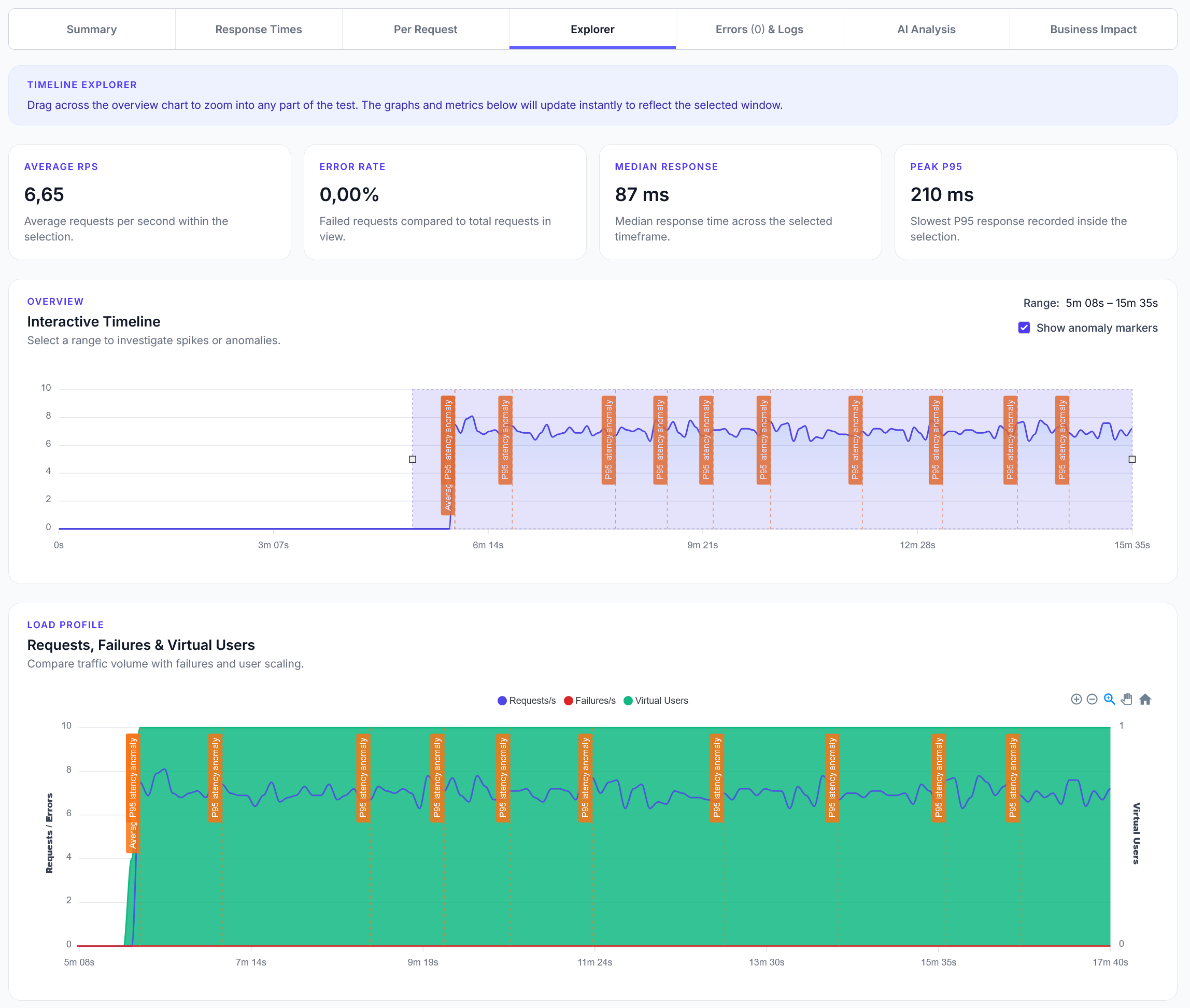
Explorer reports addition
We have added a new Explorer feature to reports, with a timeline scrubber and easy anomaly detection.
Use LoadForge to seamlessly test XML-RPC servers using the powerful capabilities of Python.
LoadForge can record your browser, graphically build tests, scan your site with a wizard and more. Sign up now to run your first test.
By default, LoadForge is set to test plain HTTP/HTTPS websites. But its versatility allows users to venture beyond this norm. If you're looking to load test an XML-RPC server, LoadForge combined with Python provides a simple and effective way. This documentation walks you through how to achieve that.
XML-RPC stands for "XML Remote Procedure Call". It's a protocol that encodes its calls as XML and transmits via HTTP. It allows for data to be passed, processed, and returned.
LoadForge is a platform that offers a straightforward way to create load tests using Python scripts, such as those that define interactions with XML-RPC servers.
Below is a practical example of how you can customize LoadForge to test an XML-RPC server. This script simulates calls to the get_time() and get_random_number() functions. Replace these calls with those relevant to your XML-RPC service.
import time
from xmlrpc.client import ServerProxy, Fault
from locust import User, task
class XmlRpcClient(ServerProxy):
"""
XmlRpcClient is a tailored version of the standard library's ServerProxy.
It captures function calls and triggers the *request* event upon completion, ensuring the calls are logged.
"""
def __init__(self, host, request_event):
super().__init__(host)
self._request_event = request_event
def __getattr__(self, name):
func = ServerProxy.__getattr__(self, name)
def wrapper(*args, **kwargs):
start_time = time.perf_counter()
request_meta = {
"request_type": "xmlrpc",
"name": name,
"response_length": 0,
"response": None,
"context": {}, # Refer to HttpUser for context implementation details
"exception": None,
}
try:
request_meta["response"] = func(*args, **kwargs)
except Fault as e:
request_meta["exception"] = e
request_meta["response_time"] = (time.perf_counter() - start_time) * 1000
self._request_event.fire(**request_meta) # Logging the request
return request_meta["response"]
return wrapper
class XmlRpcUser(User):
abstract = True # Ensures that this isn't instantiated as an actual user
def __init__(self, environment):
super().__init__(environment)
self.client = XmlRpcClient(self.host, request_event=environment.events.request)
# The user class that is instantiated for testing
class MyUser(XmlRpcUser):
@task
def get_time(self):
self.client.get_time()
@task
def get_random_number(self):
self.client.get_random_number(0, 100)
LoadForge is built on the backbone of Locust, making it compatible with open-source Locust scripts. If you're already a Locust user, you can effortlessly port your scripts to LoadForge to amplify your testing capabilities.